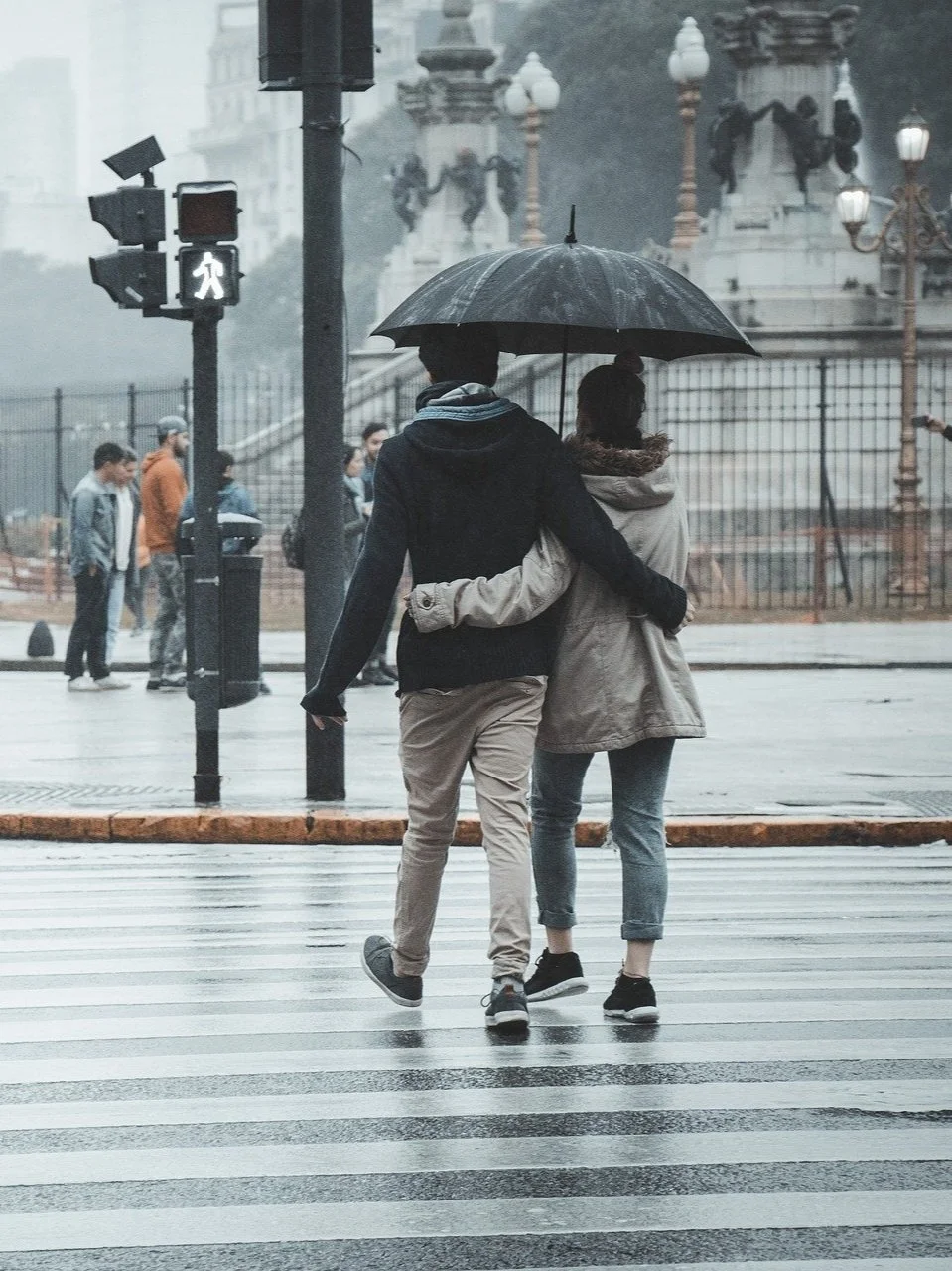Cultivating Security ~ Part 2: Do Relationships Fan the Flames of Our Insecurities, Or Do They Put Out the Fire?
If you are a parent, or have a parent…
If you have been in a relationship, or been through a breakup…
If you have felt disappointed or betrayed by a friend, colleague, or sibling…
You, along with the majority of us, have probably experienced hurt in relationship with another person/s.
Experts are now saying that though we are likely to be hurt (or even traumatized) in relationship with others, it is also through our relationships that we have access to an incredible healing potential.
Healthy relationships allow us to establish, or re-establish, a sense of safety in connection with others, and help us grow our trust in two significant ways:
1) Develop trust in another person—In safe, supportive, and reliable relationships, we are able to learn how to confide in others and receive love in ways which help us to feel more secure over time.
(eg. Will you be there when I need you? Can I count on you? Will you accept me for who I am, including my mistakes and flaws?)
2) Strengthen trust within ourselves—When we listen carefully and pay attention to our needs and feelings in the context of our relationships, we discover more about ourselves. As we honor what we experience and find ways to communicate our feelings and needs effectively, we realize we can rely on ourselves to keep us safe. The more we feel genuinely secure inside ourself, the better we are able to navigate the needs of others and the challenges that arise in relationships.
(eg. What am I feeling at this moment in this relationship? What do I need to feel safe in this relationship? Where/how can I take responsibility in meeting my own needs?)
The evidence on the importance of healthy interpersonal relationships is vast and quickly increasing.
Research identifies how the quality of the relationships in our lives can influence our physical, mental and emotional vitality.
Meaningful relationships can be a critical protective factor against common emotional or social ailments (eg. depression, addiction, etc).
The longest ongoing study in the world has consistently found over the last century that supportive relationships —more important than income, education, or genetics— have the greatest impact on our health and happiness. More recent studies indicate that even micro-interactions (ie. small talk with strangers) can boost our well-being and psychological safety.
From an evolutionary perspective, we have been able to survive because we are a social species.
For millennia, we have depended on our tribe for protection (“safety in numbers”), for procreation (“it takes two to tango”), and for provisions (“you hunt and make tools, while I gather and weave baskets and blankets”). We depended on the external validation of our relationships, because historically, getting ousted by our tribe literally meant death.
In modern day, getting ousted by our tribe might seem less dramatic (eg. getting laid off from work, struggling to find a good match on your dating app, being cancelled or unfollowed on social mediate etc), but it is no less detrimental.
When we feel a lack of belonging, acceptance, and validation from external relationships, we feel unsafe, which can evoke that primitive instinct connected to our survival.
The external validation we get from feeling accepted is integral to our sense of safety and wellbeing. However, this can be a precarious balance. We don’t want all of our security or self-worth to come from external sources.
We must also amplify our internal resources and create ways to validate ourselves from within.
Becoming overly dependent on social interactions or external validation can lead to, or exacerbate, our insecurities. We see this in codependent relationships, addictions (work, substance or sex), and in evidence of how social media can result in increased depression and anxiety.
When external sources of validation are inadequate or disappoint us, we may revert to automatic defensive strategies for psychological survival and self-preservation.
We instinctively do whatever we can to make ourselves feel we are in control and safe (from threat, rejection, abandonment, etc).
When our insecurities flare up, we revert to these common self-preservations strategies:
Hold on tighter! (Associated with “anxious attachment”)
We are instinctively wired to bond, to belong, and to depend on the others for our safety and survival. Being left alone without care or protection significantly increases our chances of death. So, it is not unusual for us to cling, grasp or tighten our grip when something (or someone) threatens our sense of safety. This can happen when we anticipate a potential loss, when we perceive someone withdrawing, or when our sense of trust (in ourself or another) is compromised.
Jump the (relation)ship, before it goes down! (Associated with “avoidant attachment”)
If you saw the movie Titanic, you will remember that if you get stuck on a sinking ship, you will not survive it. If we bail out, even if that means entering the icy waters of the world, at least we have a chance. Similarly, we believe we can preserve our sense of self —be it our ego, our pride, our perception of control— by hitting the eject button. We defend ourselves by escaping, running away, or avoiding being hurt. This can mean physically removing ourselves, or it might manifest in giving our partner the “silent treatment” or making ourself emotionally inaccessible.
Bluff and double down! (Overcompensation)
When we feel powerless, we may desperately exaggerate whatever we think will make us feel or appear more powerful. We overcompensate by presenting an inflated sense of self, self-importance, or self-reliance. Like a pufferfish face-to-face with a shark, this hyper-reactive strategy is a way of defending ourselves against threat. In human behavior, this can look like bigotry (pushing/putting others down to feel better about ourselves), narcissism (grandiosity or self-absorption), and tyrannical tendencies (micromanaging, bullying, etc). Even telling little lies or exaggerating the truth can be an effort to compensate for our insecurity.
“I’m the boss of me!” (Reactance theory)
We like to feel that we have agency in our life. We want to know we can rely on ourself if necessary. We feel secure when we feel we have the autonomy and power to make our own choices and decisions. When someone tries to tell us what to do, tells us what we’re doing is wrong, or prevents us from doing something we want to do, we counter-react. Commonly referred to as reverse psychology, this is when our inner rebel insists on doing the exact opposite. When we feel our sense of control or choice is threatened, our insecurities reel up. This can lead to self-sabotaging behaviors like infidelity, eating disorders, financial problems, etc.
Supportive, high-quality relationships can help restore safety and trust so that we feel more secure with ourselves and others. Relationships also have the unique capacity to reveal different sides of ourselves, including our defensive strategies and self-preservation tendencies. When we develop the capacity to take an honest look at how we show up in our relationships, what makes us feel safe, and what we do when we feel threatened, we are equipped with valuable information about ourselves.
Many different types of relationships, from long-term partnerships to fleeting conversations with a cashier at the grocery store, can be profoundly influential when it comes to restoring a sense of well-being and reviving self-esteem.
However, don’t outsource your self-confidence!
To cultivate trust within ourselves is to develop a resilient and authentic sense of security.






